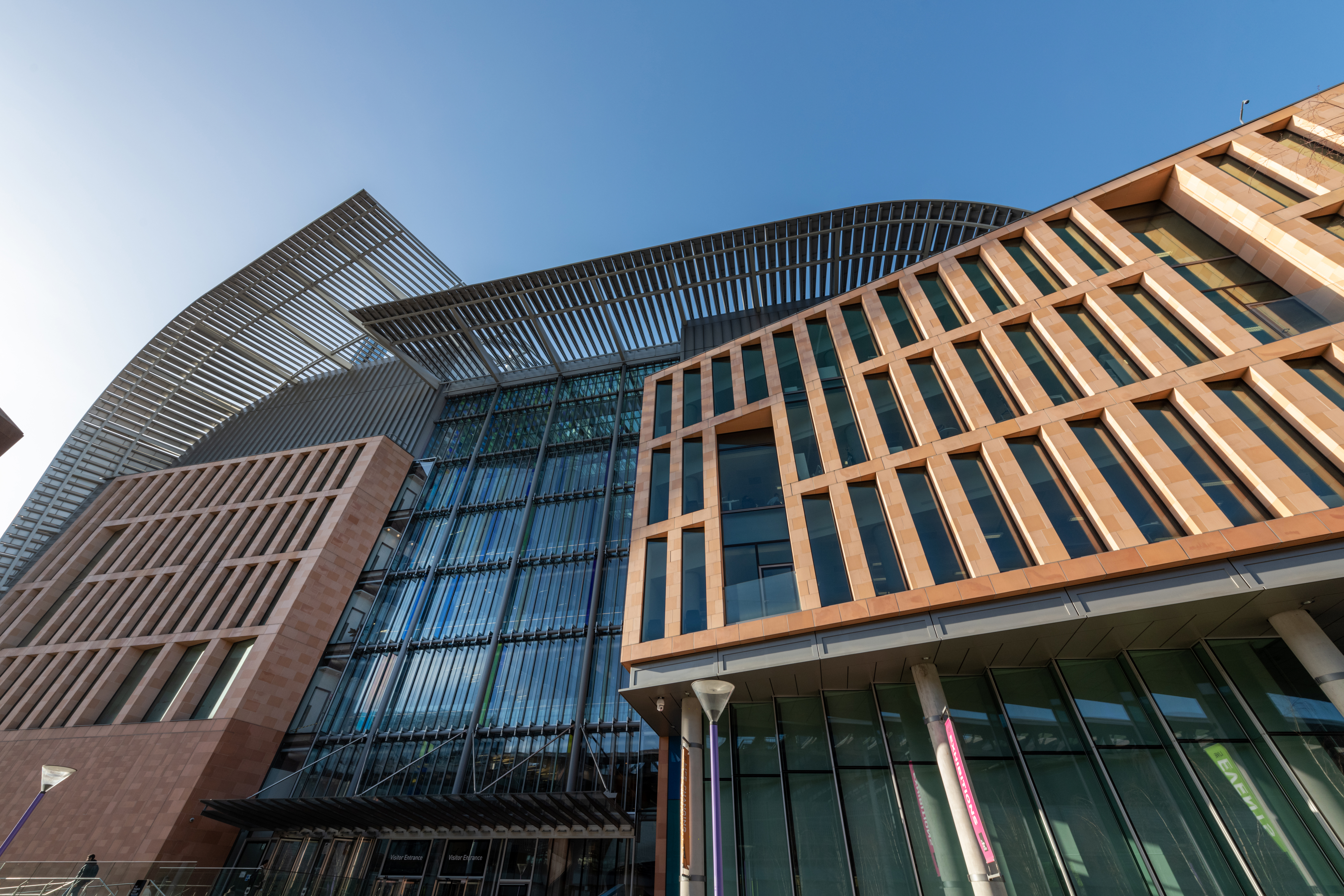About The Crick
The Francis Crick Institute is a biomedical institute whose mission is world-class discovery research to understand how living things work and to drive benefits for human health. The Crick explores biological mechanisms at all scales from molecules through cells to organisms, in order to make discoveries that will enhance understanding of the fundamental processes of life, and that have the potential to transform the prevention, diagnosis and treatment of human disease.
The Crick is an internationally renowned research centre with a strong national role and global reach, bringing together people and expertise from different scientific disciplines. It works with organisations in the academic, clinical and industrial spheres, creating a space to deliver its distinctive vision of discovery without boundaries, and supporting the translation of discoveries into health benefits.
Led by Sir Paul Nurse, we are a unique partnership between six of the world’s leading biomedical research organisations – the Medical Research Council, Cancer Research UK, the Wellcome Trust, University College London, Imperial College London and King’s College London. Located in a state-of-the-art building in central London, the Crick houses over 2,000 staff and more than 100 research groups.
We began operating in our new, purpose-built institute in early 2017 and now have more than 100 research groups. Research groups from NIMR and LRI have been joined by groups seconded from each of our three partner universities, and we have recruited a significant number of newly recruited group leaders.
The institute is governed by a Board of Trustees, comprised of independent members and representatives from each of our founding partners. We are funded through core funding from the MRC, CRUK and Wellcome, as well as external research grants.
Our Approach to Science
We’re conducting research at the forefront of biomedical research. We combine this rigour with an open and interactive culture, bringing together people with varied research interests and expertise, including clinicians, physical scientists and applied scientists from our pharmaceutical partners.
We have a wide research portfolio, with no divisions or departments, and our research groups have the freedom to establish research programmes within broad areas. This approach allows us to respond rapidly to new opportunities.
We are collaborative and outward-looking, reflecting our status as a partnership of six organisations aiming to pool knowledge, ideas and resources.
Our approach to science is summarised by the four principles set out in our strategy.

Our Strategy: Discovery Without Boundaries
Our mission is discovery without boundaries; to carry out world-class discovery research to understand how living things work and to drive benefits for human health.
We explore biological mechanisms at all scales from molecules through cells to organisms. Our discoveries will enhance our understanding of the fundamental processes of life, and have the potential to transform the prevention, diagnosis and treatment of human disease.
To deliver our mission, we bring together expertise from different scientific disciplines and work with different types of organisations across the academic, clinical and industrial spheres. This creates a space for discovery without boundaries and supports the translation of discoveries into health benefits.
Our principles:
- We conduct research of the highest quality.
- We maintain a broad scientific portfolio, embracing interdisciplinarity and translation.
- We incubate early-career talent.
- We are permeable and outward looking.
These principles will guide us as we focus on our five priority objectives to:
The full strategy document can be found on our website.

Our Governance Structure
The Francis Crick Institute is a registered charity governed by our Board of Trustees, made up of independent members and representatives from each of our founding partners. The Board is responsible for promoting the long-term success of the Crick, and sets strategy, funding policy and priorities. The Board delegates day-to-day management to the Director.
The Executive Committee is chaired by the Crick’s director and is responsible for the delivery of our Discovery Without Boundaries strategy and the management of the organisation.
Two senior committees report into the Executive Committee:
- Science Management Committee: coordinates the Crick’s science leadership and supports delivery of our strategy.
- Finance Committee
Biomedical research is adapting and developing constantly. To adapt to this, the Crick has a level structure without traditional disciplinary boundaries. Our researchers do not belong to departments or divisions and instead join interest groups, which bring people together from across the organisation to share insights in areas of common scientific interest.
Approach to Translation and Commercialisation of Crick Science and Expertise
We have had a successful track record of scientific translation since our formation, having filed 39 patents and patent applications, entered into 32 licenses and created 11 spin-out companies. This underlines the significant potential that lies within the Crick to deliver commercial as well as scientific impact.
A recent £50m donation from the Chris Banton Foundation has been provided for the purpose of accelerating the translation and application of Crick science and expertise, and specifically to achieve a return on investment that contributes to the Crick’s long-term financial sustainability. These funds represent a significant increase above the level of translational and commercial funding that the Crick has been able to access to date, and provide an opportunity to significantly increase the value that we can create and capture through our translational and commercial activities.
We have recently launched a new five-year translational and commercial strategy with the aspiration to create pathways for application of Crick science and expertise to deliver benefits for society and human health. This strategy comprises four strategic priorities:
- Accelerate the translational impact of Crick-originated discoveries
Significantly strengthen the environment for translating the Crick’s pioneering discovery research into innovative new treatments, diagnostics and technologies to benefit human health
- Capture business opportunities based on Crick’s world leading infrastructure, expertise and brand
Pursue opportunities to generate value from the Crick’s infrastructure, expertise, reputation, network and brand to further the Crick’s mission and deliver economic and societal impact
- Promote an environment that is Open to Business
Implement a translational and commercial operating model that enables effective, agile and professional engagement with commercial stakeholders including industry and investors, while adhering to and protecting the parent charity’s mission and values
- Generate sustainable financial income for reinvestment into discovery research
Create a diverse portfolio of income-generating opportunities that deliver near-term returns and support stable long-term growth
Over the next five years our strategy is projected to significantly increase the scale and scope of our commercial activities, resulting in a portfolio of opportunities to generate value from the Crick’s broad scientific asset base, including infrastructure (such as the building and location, laboratory facilities and equipment, and IT capabilities); people and expertise; and the Crick’s international reputation, network and brand, and provide a basis for long-term income generation.

Working at The Crick
The Crick is a truly welcoming and collaborative environment, with a sense of community that is rooted in day-to-day interactions. Our building is designed around collaboration, with plenty of places to bump into people or have quick chats or more formal meetings.
Our people are the key to achieving our ambitious aims and so we invest in their learning and career development. We offer tailored development programmes and opportunities to share skills, experience and expertise to support a unique learning environment. We have a number of staff-run networks, bringing together staff from across our institute. Our networks represent the interests of particular groups of people, such as our Race Equity Network – PRISM, Proud Crick, or the Scientist Network, as well as providing social and networking opportunities. In addition, we have a variety of social groups for colleagues to get to know each other outside of work, which are open to everyone who works at the Crick.
The Crick is committed to equality, diversity and inclusion, and in 2020 launched an EDI Strategy which aims to link up all of the Institute’s work in this space and ensure that it remains at the top of the agenda. The EDI Committee works closely with the leadership of the Crick and staff networks to progress our aims, support equality, diversity and inclusion at the Crick and in the wider community, and through this foster creativity and excellence in science.

Job Descriptions
The Job Descriptions for both roles are available to download below:
How to Apply
Candidates wishing to apply should submit a CV (including comprehensive details of key achievements and responsibilities) along with a covering letter which fully addresses the competencies outlined in the role description and person specification.
The closing date for applications is 9:00am (BST) on Monday 22nd April 2024.
For an informal and confidential discussion about this position, please contact Lucy Roper at Perrett Laver via lucy.roper@perrettlaver.com or +44 (0)20 3928 7358 for the role of Head of Commercial Portfolio or Urvashi Ramphul via urvashi.ramphul@perrettlaver.com or +44 (0)20 7340 6280 for the Director of Translation role.




